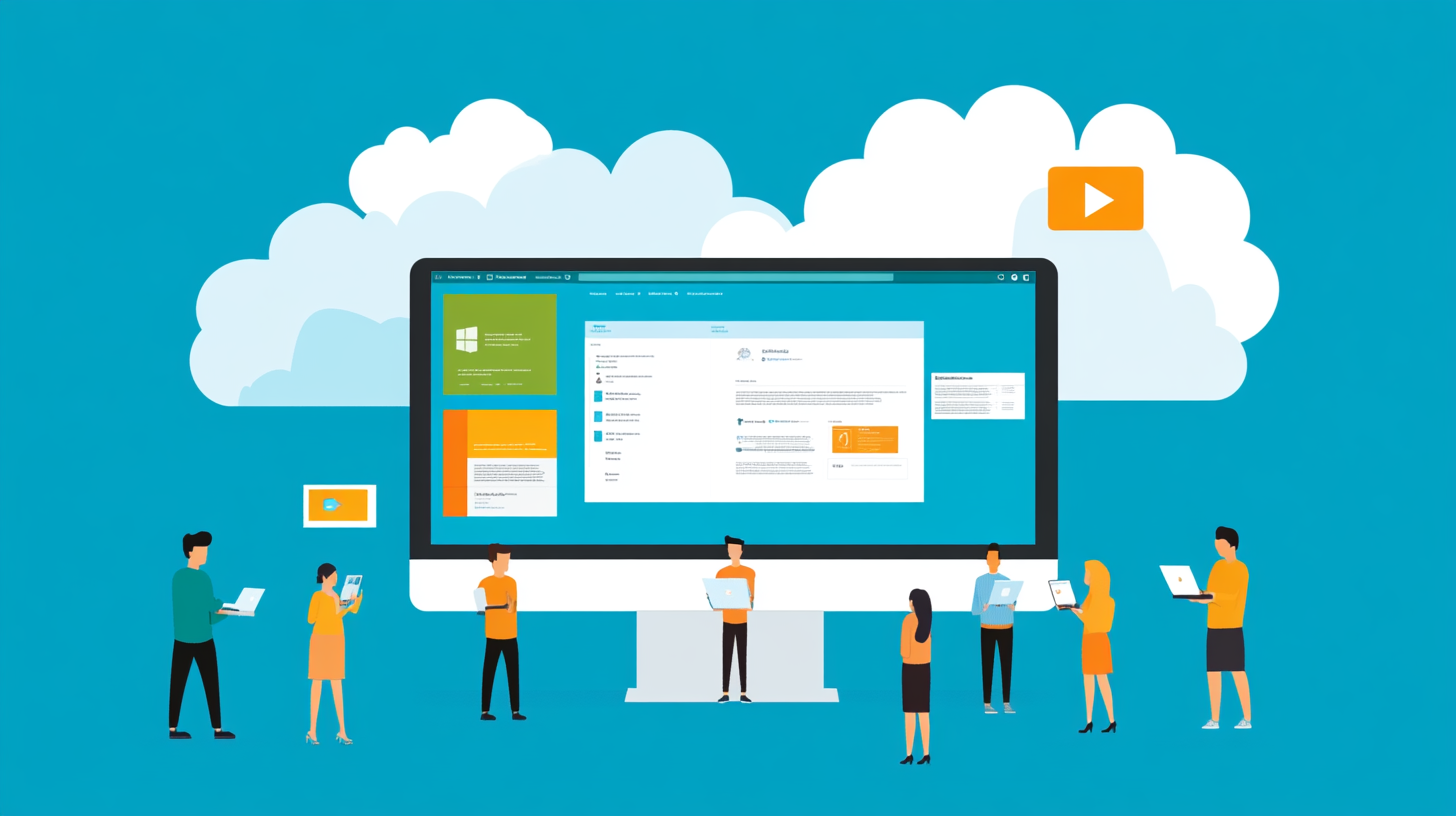How to Enhance Your CRM Strategy with Microsoft Dynamics 365

Customer Relationship Management (CRM) plays a crucial role in today's business landscape. It helps you manage interactions with current and potential customers, enhancing satisfaction and loyalty. Statistics show that 47% of users report improved customer satisfaction through CRM systems. Microsoft Dynamics 365 stands out as a powerful CRM tool, offering comprehensive solutions to streamline your processes. By enhancing your CRM strategy, you can boost productivity and sales. In fact, companies using CRM software have seen sales increase by up to 29%. Embracing an effective CRM strategy is essential for staying competitive and achieving business growth.
Understanding Microsoft Dynamics 365
Microsoft Dynamics 365 offers a comprehensive suite of tools designed to enhance your CRM strategy. By understanding its key features and benefits, you can leverage this powerful platform to drive business growth and improve customer relationships.
Key Features of Microsoft Dynamics 365
Customer Insights
With Microsoft Dynamics 365, you gain valuable customer insights. The platform collects and analyzes data from various sources, providing a 360-degree view of your customers. This feature helps you understand customer behavior, preferences, and needs, enabling you to tailor your services and products accordingly.
Sales Automation
Sales automation in Microsoft Dynamics 365 streamlines your sales processes. It automates repetitive tasks, such as follow-up emails and appointment scheduling, freeing up your sales team to focus on building relationships and closing deals. This efficiency boosts productivity and enhances your sales strategy.
Marketing Integration
Integrating marketing efforts with Microsoft Dynamics 365 ensures seamless communication between your sales and marketing teams. The platform allows you to create targeted marketing campaigns, track their performance, and adjust strategies based on real-time data. This integration fosters collaboration and aligns your marketing and sales goals.
Benefits of Using Microsoft Dynamics 365
Scalability
Microsoft Dynamics 365 offers scalability to accommodate your business growth. Whether you're a small startup or a large enterprise, the platform adapts to your changing needs. You can add or remove features as required, ensuring that your CRM system evolves with your business.
Customization
Customization is a standout benefit of Microsoft Dynamics 365. You can tailor the platform to fit your specific business processes and requirements. From customizing dashboards to creating unique workflows, the flexibility of Dynamics 365 ensures that your CRM system aligns perfectly with your business objectives.
Integration Capabilities
The integration capabilities of Microsoft Dynamics 365 are unparalleled. The platform seamlessly connects with other Microsoft products, such as Outlook and Excel, enhancing productivity and data management. Additionally, it supports third-party integrations, allowing you to connect with other tools and systems you use daily.
By understanding and utilizing these features and benefits, you can enhance your CRM strategy with Microsoft Dynamics 365. This powerful tool not only improves customer relationships but also drives efficiency and growth within your organization.
Setting Up Microsoft Dynamics 365 for Your Business
Setting up Microsoft Dynamics 365 for your business involves a few essential steps. By following these steps, you can ensure a smooth transition and maximize the benefits of this powerful CRM tool.
Initial Configuration
User Setup
To begin, you need to set up users in Microsoft Dynamics 365. Assign roles and permissions based on each team member's responsibilities. This ensures that everyone has access to the information they need while maintaining data security. By customizing user access, you can streamline workflows and enhance productivity.
Data Migration
Next, focus on data migration. Transfer existing customer data into Microsoft Dynamics 365. This step is crucial for maintaining continuity in your customer relationships. Use data mapping tools to ensure accuracy and consistency. By carefully migrating data, you can avoid disruptions and maintain a seamless customer experience.
Customizing the Dashboard
Adding Widgets
Customizing the dashboard in Microsoft Dynamics 365 allows you to tailor the interface to your business needs. Start by adding widgets that display key metrics and insights. These widgets provide quick access to important information, helping you make informed decisions. By personalizing the dashboard, you can enhance efficiency and focus on what matters most.
Personalizing Views
Personalizing views in Microsoft Dynamics 365 enables you to organize data in a way that suits your workflow. Create custom views to filter and sort information based on specific criteria. This customization helps you quickly find the data you need, improving your ability to respond to customer inquiries and track sales progress.
Case Study: Colliers International Indiana successfully customized their CRM using Microsoft Dynamics 365. They tailored the platform to fit their specific workflow, making them a more attractive employer and enhancing their operational efficiency.
By setting up Microsoft Dynamics 365 effectively, you can harness its full potential. This setup not only improves your CRM strategy but also positions your business for growth and success.
Optimizing CRM Processes
Enhancing your CRM processes with Microsoft Dynamics 365 can significantly boost efficiency and customer satisfaction. By automating workflows and engaging customers more effectively, you can streamline operations and improve interactions.
Automating Workflows
Automation is a powerful feature of Microsoft Dynamics 365. It allows you to reduce manual tasks and focus on strategic activities.
Setting Up Triggers
You can set up triggers to automate routine tasks. For example, when a customer makes a purchase, the system can automatically send a confirmation email. This reduces the workload on your team and ensures timely communication. Triggers help maintain consistency and reliability in your processes.
Creating Automated Responses
Automated responses enhance customer service by providing instant replies to common inquiries. You can create templates for frequently asked questions, ensuring customers receive quick and accurate information. This not only improves response times but also enhances customer satisfaction.
Enhancing Customer Engagement
Engaging customers effectively is crucial for building strong relationships. Microsoft Dynamics 365 offers tools to personalize communication and gather valuable feedback.
Personalized Communication
Personalized communication makes customers feel valued. Use Microsoft Dynamics 365 to tailor messages based on customer preferences and behavior. By sending targeted offers and updates, you can increase engagement and loyalty. Personalization fosters a deeper connection with your audience.
Feedback Collection
Collecting feedback is essential for understanding customer needs. Microsoft Dynamics 365 enables you to gather insights through surveys and feedback forms. This information helps you refine your products and services, ensuring they meet customer expectations. Regular feedback collection strengthens your relationship with customers and drives continuous improvement.
By optimizing CRM processes with Microsoft Dynamics 365, you can enhance productivity and customer satisfaction. Automation and engagement tools empower you to deliver exceptional service and foster lasting relationships.
Leveraging Data Analytics

In today's data-driven world, leveraging data analytics can transform your CRM strategy. Microsoft Dynamics 365 offers robust tools to help you harness the power of data, providing insights that drive informed decisions and enhance customer relationships.
Utilizing Customer Insights
Understanding customer behavior is crucial for tailoring your services and products. Microsoft Dynamics 365 collects and analyzes data from various touchpoints, offering a comprehensive view of customer interactions.
Analyzing Customer Behavior
You can analyze customer behavior by examining patterns and trends in their interactions. Microsoft Dynamics 365 provides actionable insights into customer needs and preferences. This understanding allows you to anticipate customer demands and tailor your offerings accordingly. By focusing on customer behavior, you can enhance satisfaction and loyalty.
Predictive Analytics
Predictive analytics takes your CRM strategy to the next level. With Microsoft Dynamics 365, you can use AI to forecast future customer actions and business outcomes. This capability enables you to proactively address potential issues and seize opportunities. Predictive analytics helps you stay ahead of the competition by making data-driven decisions that align with customer expectations.
Reporting and Dashboards
Effective reporting and dashboards are essential for monitoring your CRM performance. Microsoft Dynamics 365 offers customizable options to visualize data and track key metrics.
Custom Reports
Creating custom reports in Microsoft Dynamics 365 allows you to focus on specific areas of interest. You can generate reports that highlight sales performance, customer engagement, or any other relevant metric. Custom reports provide the insights needed to refine your strategies and achieve your business goals.
Real-time Dashboards
Real-time dashboards offer a dynamic view of your CRM data. Microsoft Dynamics 365 enables you to create dashboards that display up-to-the-minute information. This feature helps you make timely decisions and respond quickly to changes in customer behavior or market conditions. Real-time dashboards ensure you have the information you need at your fingertips.
By leveraging data analytics with Microsoft Dynamics 365, you can transform your CRM strategy. Utilizing customer insights and predictive analytics empowers you to make informed decisions. Custom reports and real-time dashboards provide the tools needed to monitor performance and drive success. Embrace these capabilities to enhance your CRM strategy and achieve business growth.
Integrating with Other Tools
Integrating Microsoft Dynamics 365 with other tools enhances its functionality and maximizes your CRM strategy. By connecting with familiar applications, you streamline workflows and improve data management.
Integration with Microsoft Office Suite
Microsoft Dynamics 365 seamlessly integrates with the Microsoft Office Suite, offering a cohesive experience across platforms.
Outlook Integration
Outlook integration allows you to manage emails, appointments, and contacts directly within Microsoft Dynamics 365. You can track customer interactions without switching between applications. This integration boosts productivity by keeping all communication in one place. You can also schedule meetings and set reminders, ensuring you never miss important engagements.
Excel Data Management
Excel integration simplifies data management. You can export data from Microsoft Dynamics 365 to Excel for analysis and reporting. This feature enables you to manipulate data using familiar Excel tools, making it easier to generate insights. You can also import data back into Dynamics 365, ensuring your CRM system remains up-to-date with the latest information.
Third-party Application Integration
Microsoft Dynamics 365 offers robust capabilities for integrating with third-party applications, expanding its functionality beyond the Microsoft ecosystem.
API Connections
API connections allow you to link Microsoft Dynamics 365 with various third-party applications. By using APIs, you can automate data exchange between systems, reducing manual entry and minimizing errors. This connectivity ensures that your CRM system works harmoniously with other tools you rely on, such as accounting software or e-commerce platforms.
Using Connectors
Connectors provide an easy way to integrate Microsoft Dynamics 365 with a wide range of applications. These pre-built solutions simplify the integration process, allowing you to connect with popular tools like Salesforce, Mailchimp, or Slack. By using connectors, you can enhance collaboration and streamline processes across different departments.
Integrating Microsoft Dynamics 365 with other tools enhances your CRM strategy by improving efficiency and data management. Whether through Microsoft Office Suite or third-party applications, these integrations provide a seamless experience that supports your business needs.
Training and Support
Training Your Team
Effective training ensures your team maximizes the potential of Microsoft Dynamics 365. Tailoring training to meet specific business needs enhances user adoption and ROI.
Online Resources
Utilize online resources to provide flexible learning options. Microsoft offers a variety of tutorials, webinars, and documentation. These resources allow your team to learn at their own pace and revisit materials as needed. Encourage exploration of these tools to build confidence and proficiency.
In-house Training Sessions
Conduct in-house training sessions for hands-on experience. Customize these sessions to address your business's unique processes and challenges. Engage your team with interactive workshops and real-world scenarios. This approach fosters a deeper understanding and encourages collaboration.
Accessing Support
Reliable support is crucial for maintaining and improving your CRM system. Microsoft Dynamics 365 offers several support channels to assist you.
Microsoft Support Channels
Access Microsoft support channels for expert assistance. Utilize their help desk, live chat, or phone support for troubleshooting and guidance. These channels provide timely solutions to technical issues, ensuring minimal disruption to your operations.
Community Forums
Join community forums to connect with other Dynamics 365 users. These platforms offer a wealth of shared knowledge and experiences. Participate in discussions, ask questions, and share insights. Community engagement fosters continuous improvement and innovation.
By investing in training and support, you empower your team to excel with Microsoft Dynamics 365. Tailored training and accessible support ensure your CRM strategy remains effective and adaptable.
Measuring Success and ROI
To enhance your CRM strategy with Microsoft Dynamics 365, you need to measure success and ROI effectively. This involves setting clear KPIs and analyzing the return on investment.
Setting KPIs
Key Performance Indicators (KPIs) help you track progress and measure success. They provide a clear picture of how well your CRM strategy is performing.
Customer Retention Rates
Customer retention rates indicate how well you maintain relationships with existing customers. High retention rates often reflect customer satisfaction and loyalty. By focusing on retention, you can reduce churn and increase lifetime value.
Sales Growth
Sales growth measures the increase in sales over a specific period. It reflects the effectiveness of your CRM strategy in driving revenue. Monitoring sales growth helps you identify successful tactics and areas needing improvement.
Analyzing ROI
Understanding the return on investment (ROI) from your CRM efforts is crucial. It helps you determine the financial benefits of your CRM strategy.
Cost-Benefit Analysis
A cost-benefit analysis compares the costs of implementing Microsoft Dynamics 365 with the benefits gained. Companies report an average of 445% ROI from CRM solutions. This analysis helps you understand the financial impact and justify the investment.
Long-term Impact
Consider the long-term impact of your CRM strategy. Evaluate how Microsoft Dynamics 365 contributes to sustained growth and customer satisfaction. *92% of users say CRM is essential to their revenue goals*. This insight ensures your strategy aligns with future business objectives.
By setting KPIs and analyzing ROI, you can measure the success of your CRM strategy. These steps help you make informed decisions and drive continuous improvement with Microsoft Dynamics 365.
Future Trends in CRM with Microsoft Dynamics 365

As technology evolves, so does the landscape of Customer Relationship Management (CRM). Microsoft Dynamics 365 is at the forefront of these advancements, offering cutting-edge features that can transform your CRM strategy. By staying informed about future trends, you can ensure your business remains competitive and customer-focused.
AI and Machine Learning
Artificial Intelligence (AI) and Machine Learning are revolutionizing CRM systems. Microsoft Dynamics 365 integrates these technologies to enhance customer service and sales forecasting.
Predictive Customer Service
With AI, you can anticipate customer needs before they arise. Microsoft Dynamics 365 uses predictive analytics to analyze customer data and identify patterns. This allows you to proactively address issues, improving customer satisfaction. As customer service expert Shep Hyken notes, "AI integration with CRM is the most prominent advancement poised to influence the industry." By leveraging AI, you can provide a more personalized and efficient service experience.
Intelligent Sales Forecasting
Sales forecasting becomes more accurate with AI. Microsoft Dynamics 365 analyzes historical sales data and market trends to predict future sales outcomes. This insight helps you make informed decisions and allocate resources effectively. By understanding potential sales opportunities, you can optimize your sales strategy and drive growth.
Mobile CRM Solutions
In today's fast-paced world, mobile CRM solutions are essential. Microsoft Dynamics 365 offers robust mobile features that keep you connected on the go.
Mobile App Features
The mobile app for Microsoft Dynamics 365 provides access to key CRM functionalities from your smartphone or tablet. You can manage customer interactions, update records, and view analytics in real-time. This flexibility ensures you stay productive, whether you're in the office or on the road. The app's intuitive interface makes it easy to navigate and use, enhancing your overall CRM experience.
On-the-go Access
On-the-go access to CRM data empowers you to respond quickly to customer inquiries and make timely decisions. Microsoft Dynamics 365's mobile capabilities ensure you have the information you need at your fingertips. This accessibility improves your ability to engage with customers and maintain strong relationships, regardless of your location.
By embracing these future trends, you can enhance your CRM strategy with Microsoft Dynamics 365. AI and mobile solutions offer powerful tools to improve customer service and sales performance. Stay ahead of the curve by integrating these technologies into your CRM approach, ensuring your business thrives in an ever-evolving market.
A robust CRM strategy is essential for any business aiming to thrive. By leveraging Microsoft Dynamics 365, you can enhance productivity, improve customer service, and boost retention. This powerful tool helps you streamline operations and achieve sustainable growth. Embrace continuous improvement and adaptation to stay competitive. Keep your CRM system updated and efficient to maximize your return on investment. Remember, investing in the right CRM solution can double your revenue and deliver an exceptional customer experience.
See Also
Becoming a Consultant in Microsoft Dynamics 365
Utilizing Microsoft Certifications for Career Advancement
Transforming Business Operations with Microsoft Power Apps
